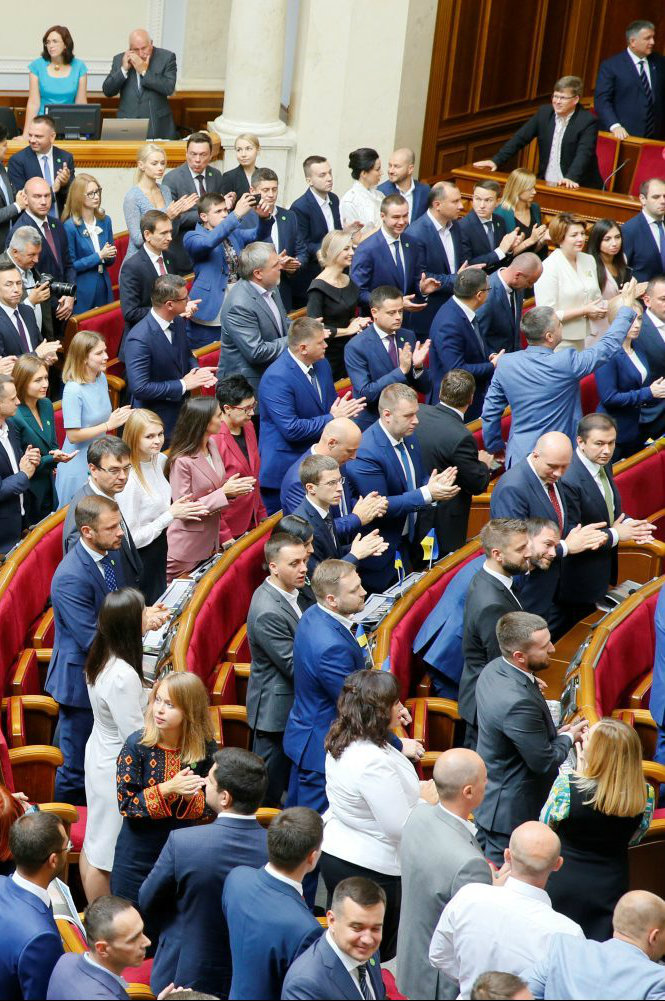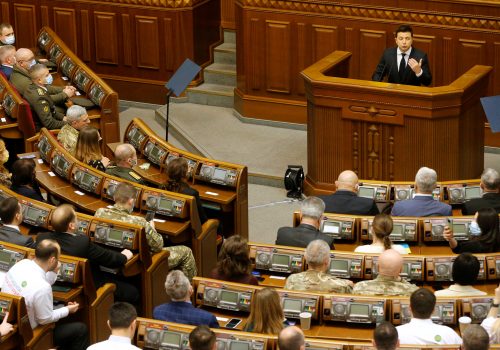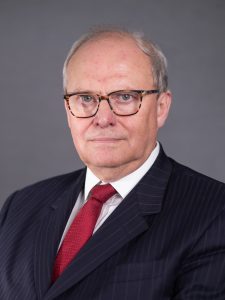Ukraine’s reformers are under attack. The home of prominent Ukrainian anti-corruption activist Vitaliy Shabunin was destroyed in a recent arson attack—similar to a still-unpunished arson attack on Ukraine’s former reformist central bank governor Valeria Gontareva last year. Meanwhile, the former Head of the State Tax Service, Serhii Verlanov—admired in the West for the integrity he brought to an agency long-mired in corruption—was abruptly dismissed and subjected to a politically motivated raid on his apartment by the Security Service of Ukraine. These incidents are but a few of the political and physical attacks targeting advocates of Ukraine’s post-2014 reform agenda.
Volodymyr Zelenskyy won Ukraine’s presidency by promising to fix Ukraine’s broken system. Now, death threats and physical attacks on civic activists go largely unpunished and reformists in the government are systematically targeted, fired, and investigated. Following the attack on Vitaliy Shabunin’s house, President Zelenksyy stated that Ukraine should be a “society of dialogue—not a society of violence.” Will President Zelenskyy back up his words and ensure the protection of those trying to keep Ukraine on the right path? With the world’s eyes on Ukraine, waiting to see whether reform goes up in smoke, can Kyiv salvage Ukraine’s future from the rubble?
Valeria Gontareva, former governor of the National Bank of Ukraine; Vitaliy Shabunin, chairman of the board of the Anti-Corruption Action Center; Serhiy Verlanov, former head of the State Tax Service of Ukraine; and Yaroslav Yurchyshyn, a member of parliament in the Verkhovna Rada and first deputy chair of the Anti-corruption Committee, join to discuss how Ukraine’s reformers are being targeted and what Kyiv can do about it. Melinda Haring, deputy director of the Atlantic Council’s Eurasia Center, moderates the discussion.
spotlight

Creating lasting progress
Reform in Ukraine
Since the Revolution of Dignity in 2014, Ukrainians have expressed their strong desire for lasting change and reform to Ukraine’s economy, politics, and society. Some progress has been achieved but challenges still remain.
RELATED experts

The Eurasia Center’s mission is to promote policies that strengthen stability, democratic values, and prosperity in Eurasia, from Eastern Europe in the West to the Caucasus, Russia, and Central Asia in the East.




